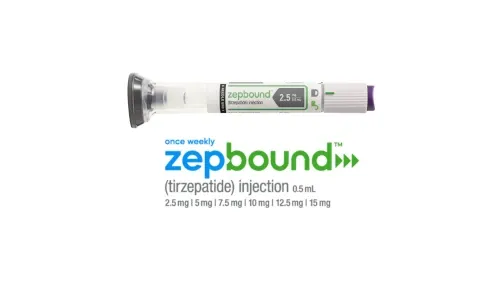Eli Lilly China approval and new suppliers
As the race to manufacture more GLP1 medications intensifies, Eli Lilly gets approval in China and more suppliers.

Eli Lilly creates two of the biggest and most popular GLP1 medications: Mounjaro and Zepbound.


Check out our quick explainer
Both of these drugs are based on the same active ingredient – Tirzepatide.
There are two large developments this month that might point towards more availability of both of these drugs for international and certain local markets.
Tirzepatide approval in China
Reported by Reuters, Tirzepatide's approval in China means that Eli Lilly is sure to gearing up to start producing and selling large quantities of Tirzepatide (Mounjaro, Zepbound) in China, which means a huge increase to scale of production.
This is great for the possibility of increasing availability, and also raising global awareness of these drugs.
Eli Lilly finds more Zepbound manufacturers and providers
While not necessarily related, earlier in 2024 Novo Nordisk purchased a crucial drug manufacturer called Catalent. Novo Nordisk acquired Catalent to enable higher levels of production for Wegovy (currently the only FDA approved GLP1 for weight loss).
Novo Nordisk's purchase clearly leave other competing pharmaceuticals like Eli Lilly in a difficult position – in reaction to this, Eli Lilly was able to secure some new providers and increase it's ability to produce it's own GLP1 medications.
In particular, Eli Lilly partnered with two different companies: National Resilience and BSP.
Eli Lilly was also quite upfront with it's worries about industry consolidation in the press:
- Lilly reportedly worried about impact of Catalent/Novo deal
- Lilly rides wave of weight-loss drug demand, working to expand capacity
Reuters reported the following of Eli Lilly's finance chief Anaz Ashkenazi:
Ashkenazi said Catalent was an integral manufacturer of both commercial and pipeline products for the industry, especially in diabetes and obesity, "and we have products with these sites as well."
She told investors the company will hold Catalent accountable to their contract, as it seeks more information about the deal, while CEO David Ricks told the Financial Times that Novo's proposal to buy three of Catalent's plants was "unusual" and raises potential antitrust concerns.
While Catalent is certainly required to produce as long as the contracts are valid, clearly there is a bit of a struggle going on for manufacturing capability, and Eli Lilly is making sure not to be left out.
What's next? India, maybe.
Other than seeing National Resilience enter as a manufacturer for Novo, we haven't seen many large waves of press from India's skilled pharmaceutical manufacturing industry with regards to GLP1s – in particular creating their own formulations (or starting to manufacture a Victoza generic for example).
As larger countries enter the GLP1 markets more completely we look forward to decreasing costs and increasing availability of GLP1 RAs.







